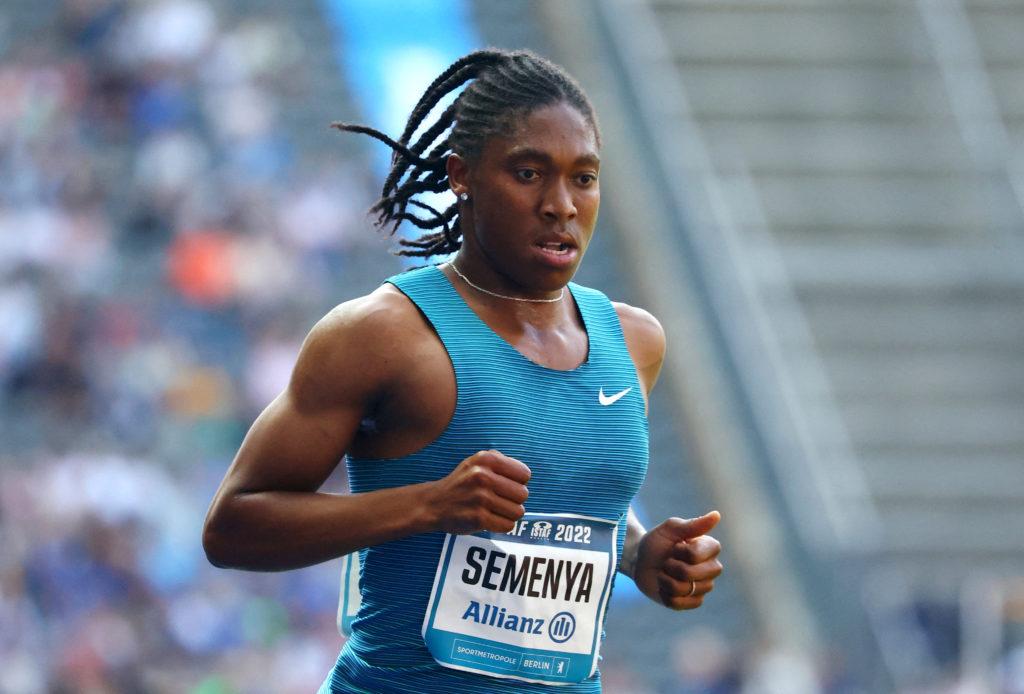The ongoing debate surrounding transgender athletes in sports has reached a critical crossroads, drawing sharp divisions across communities, policymakers, and sporting bodies worldwide. In her latest article for The Guardian, Joanna Harper calls for a nuanced approach that prioritizes compromise over conflict. As the conversation intensifies over fairness, inclusion, and competitive integrity, Harper’s insights emphasize the need for balanced solutions that respect both transgender rights and the principles of sport. This discussion comes amid growing calls for policies that bridge differing perspectives rather than deepen the divide.
The complexity of gender identity in competitive sports
Navigating the intersection of biology, identity, and fairness in competitive sports has become a multifaceted challenge that defies simple solutions. Athletes, governing bodies, and society at large grapple with questions around hormone levels, physical advantages, and the integrity of women’s categories. While some argue for strict eligibility criteria based on physiological metrics, others emphasize respect for self-identified gender and inclusion. The reality is a nuanced spectrum where binary definitions fall short, and a one-size-fits-all approach risks marginalizing athletes or compromising competitive balance.
The data underlying this debate reveals complexity beyond headlines. For instance, testosterone suppression timelines, muscle mass variations, and performance impact differ widely among individuals, making blanket policies ill-suited. Key considerations include:
- Variability in hormone therapy effects that influence strength and endurance differently across sports
- Psychological impacts on transgender athletes facing exclusion or scrutiny
- Legal and ethical frameworks that vary internationally, complicating uniform standards
| Factor | Typical Range | Impact on Performance |
|---|---|---|
| Testosterone Level (nmol/L) | 0.1 – 10 | Varies; higher levels linked to increased muscle mass |
| Muscle Mass (%) | 30 – 45% | Affects strength and power output |
| Suppression Duration | 6 – 24 months | Influences hormonal reset and physical changes |
Balancing fairness and inclusion through evidence-based policies
To create a sustainable path forward in competitive sports, policy makers must navigate the delicate tension between fairness and inclusion by grounding decisions firmly in scientific evidence. This approach requires more than simplistic binaries; it demands an appreciation of physiological nuances and the impact of hormone therapy on athletic performance. By integrating robust data with lived experiences, governing bodies can craft guidelines that respect both the rights of transgender athletes and the need for a level playing field.
Effective policies often emerge through dialogue that embraces complexity rather than overlooking it. Key practices include:
- Inclusive consultation: Engaging athletes, scientists, and advocacy groups to ensure diverse perspectives inform policy development.
- Regular review: Updating eligibility criteria as new research sheds light on physiological changes and competitive balance.
- Transparent enforcement: Clear, consistent application of rules to foster trust and legitimacy in the sporting community.
| Policy Element | Focus | Impact |
|---|---|---|
| Hormone Thresholds | Testosterone Limits | Maintain Competitive Fairness |
| Eligibility Period | Time on Therapy | Ensure Physiological Adjustment |
| Data Transparency | Open Reporting | Build Community Trust |
The role of medical expertise in shaping sporting guidelines
Medical expertise plays a crucial role in informing the policies that govern transgender participation in sport, providing evidence-based insights that aim to balance fairness, inclusion, and athlete welfare. Specialists in endocrinology, sports physiology, and psychology collaborate to assess how hormone levels, physiological changes, and individual health outcomes intersect with competitive equity. Their research highlights the complexity of gender identity in relation to athletic performance, challenging simplistic narratives and emphasizing nuanced considerations over blanket rules.
Key contributions from medical professionals include:
- Assessing hormone therapy impacts: Understanding how testosterone suppression affects muscle mass, strength, and endurance.
- Evaluating health risks: Monitoring the long-term effects of medical transition on athlete well-being.
- Developing evidence-based guidelines: Advising sporting bodies on eligibility criteria grounded in physiological data.
- Encouraging individualized approaches: Recognizing that binary categories may overlook diverse athletic profiles.
| Medical Factor | Impact on Sport | Recommendation |
|---|---|---|
| Testosterone levels | Alter muscle strength and recovery rates | Regular monitoring post-transition |
| Bone density | Affects injury risk | Individualized assessment |
| Cardiovascular health | Influences endurance | Health screenings before competition |
Fostering dialogue to bridge divides and craft sustainable solutions
In the ongoing discourse surrounding transgender athletes, it is imperative to shift from polarized arguments towards constructive engagement. Genuine progress emerges when all stakeholders-athletes, policymakers, scientists, and advocates-commit to open communication grounded in respect and mutual understanding. This approach dissolves barriers, encouraging the development of inclusive policies that honor both fairness in competition and the rights of individuals to participate authentically.
To cultivate this environment, certain principles must be prioritized:
- Evidence-based dialogue: Ground conversations in the latest scientific research rather than assumptions or fear.
- Empathy and respect: Recognize the complex identities and experiences involved without antagonizing groups.
- Flexible frameworks: Develop adaptable solutions that can evolve as new insights emerge.
- Collaborative policy-making: Involve diverse voices to create balanced regulations.
| Key Stakeholder | Priority | Contribution to Dialogue |
|---|---|---|
| Athletes | Fair participation | Firsthand experiences and advocacy |
| Scientists | Research and data | Providing objective insights |
| Governing Bodies | Policy formulation | Setting inclusive and equitable rules |
| Advocacy Groups | Human rights | Championing inclusivity and equity |
In Summary
As the debate over transgender athletes in sport continues to evoke strong passions on all sides, Joanna Harper’s call for compromise highlights the urgent need to move beyond entrenched positions. Balancing fairness, inclusion, and the integrity of competition remains a complex challenge-one that demands informed dialogue and measured policies rather than divisive conflict. The future of sport depends on finding common ground where the rights and dignity of all athletes are respected.





